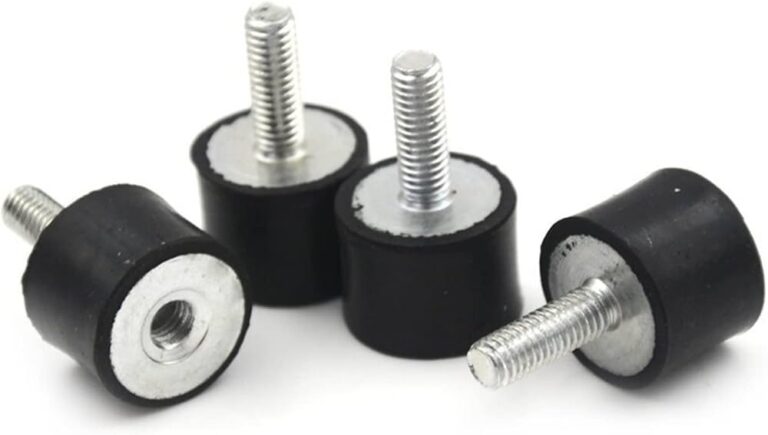Rubber vibration isolators are specialized mechanical devices that play a pivotal role in controlling and reducing the transmission of vibrations in industrial environments. These isolators use the inherent properties of rubber—elasticity and damping—to effectively mitigate the effects of vibrational energy generated by machinery, engines, and other heavy equipment. This is crucial as unchecked vibrations can lead to equipment wear, structural damage, increased noise levels, and even operational hazards.
How Do Rubber Isolators Enhance Equipment Efficiency?
The principle behind rubber isolators involves decoupling the vibrating source from its surroundings. By doing so, these isolators absorb and dissipate the energy generated by vibrations, which otherwise would transfer to other parts of the structure and potentially cause harm or inefficiency. The result is not only a quieter and more stable operation but also an increase in the lifespan and performance of the equipment. Industries ranging from manufacturing to healthcare rely on these components to maintain precision and efficiency in their operations.
What Varieties of Rubber Isolators Are Available?
Rubber isolators come in various types, each designed to address specific industrial needs:
- Cylindrical Mounts: These are versatile and effective for applications requiring vibration isolation primarily in compression, such as in compressors or pumps.
- Bushings: Ideal for rotational applications, these isolators help reduce noise and vibration in parts that undergo frequent movements.
- Spring Mounts: These isolators combine rubber with metal springs to handle heavier loads and more severe vibration scenarios, making them suitable for large-scale machinery.
- Hangers and Pads: Used mainly for suspended structures or equipment, these isolators help reduce transmitted vibrations from the source to the supporting structure.
Understanding these types helps industries select the right isolator for their specific requirements, ensuring optimal performance and protection.
What Are the Key Benefits of Implementing Rubber Isolators?
Implementing rubber isolators in industrial settings offers several advantages:
- Vibration Reduction: They significantly decrease the level of vibrations, which helps in maintaining a quieter and more stable environment.
- Protection of Equipment: Isolators prevent direct contact between the vibrating parts and their mounts, reducing wear and tear.
- Enhanced Safety: By controlling vibrations, these devices reduce the risk of vibration-induced failures and accidents.
- Cost Efficiency: Compared to more complex solutions, rubber isolators offer a budget-friendly alternative for effective vibration control.
These benefits make rubber isolators a go-to solution for many industries looking to improve their operational efficiency and workplace safety.
How Should You Choose and Install Rubber Isolators?
Choosing the right rubber isolator involves considering factors like load capacity, environmental conditions, and the specific vibration frequencies of the equipment. Proper installation is equally crucial as incorrect mounting can lead to reduced effectiveness or even damage. It’s advisable to follow manufacturer guidelines closely or consult with a vibration control specialist to ensure optimal setup and performance.
What Maintenance Tips Can Prolong the Life of Rubber Isolators?
Maintaining rubber isolators involves regular inspections for signs of wear, degradation, or mechanical failure. It is important to check for environmental factors such as exposure to chemicals, extreme temperatures, or physical damage, which could affect the performance of the isolators. Implementing a routine maintenance schedule can help detect issues early and extend the life of these crucial components.
Are There Real-Life Success Stories of Rubber Isolators at Work?
Several case studies highlight the effectiveness of rubber isolators in real-world applications. For instance, in the automotive industry, isolators have been crucial in reducing engine vibrations, thereby enhancing the driving experience and extending vehicle longevity. Similarly, in healthcare, isolators are used in sensitive laboratory equipment to ensure precise results by minimizing external vibrations. These examples showcase the versatile and indispensable role of rubber isolators across various sectors.
By understanding the functionality, types, and benefits of rubber vibration isolators, industries can make informed decisions that enhance the efficiency and safety of their operations, ultimately leading to improved productivity and reduced operational costs.

